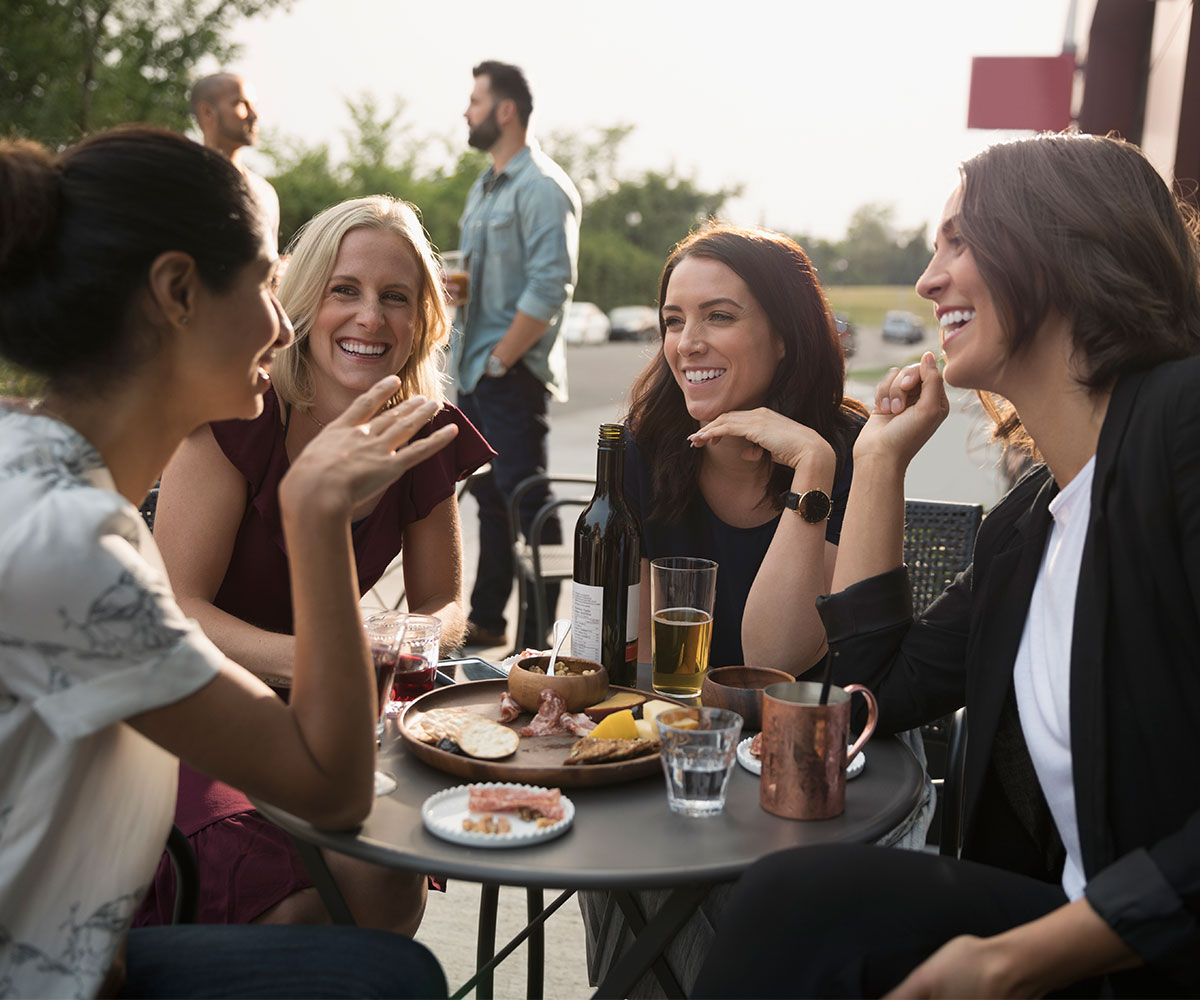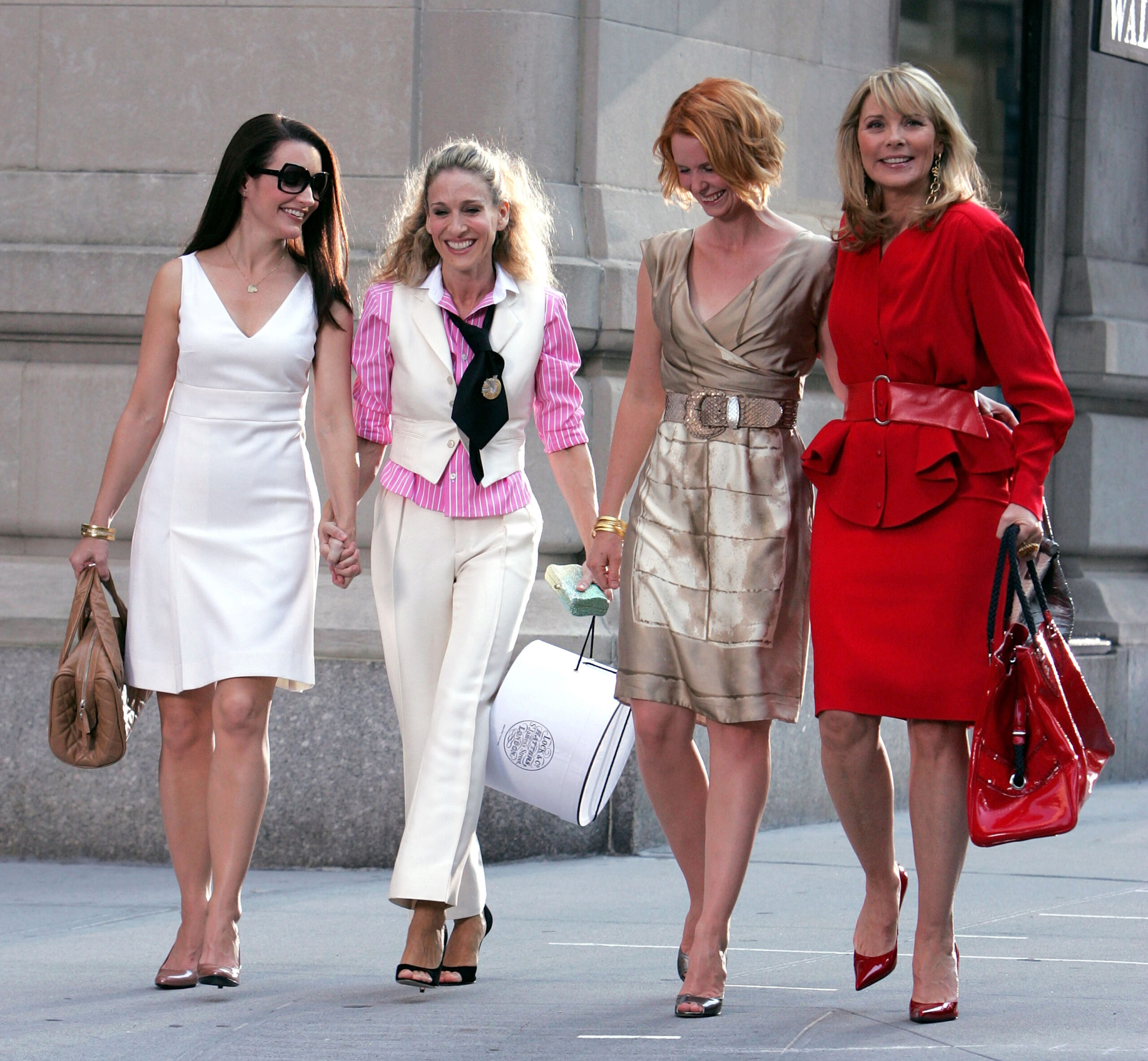Finding time for existing friendships, let alone forging new ones is hard as you get older. But if you can’t find time to see the friends you have, why are you putting pressure on yourself to keep ‘branching out’?
At my surprise 30th birthday party, I felt overwhelmed. There, in a room full to bursting, were all the people I loved in one place, at the same time, for the first time in a long time.
‘Here’s how to make new friends as an adult‘ articles keep screaming at me whenever I log on to the Internet or open a magazine. It makes sense. We’re lonelier than ever. Apparently, we hit the age of ‘peak friendship’ at 25 and now our social circles are shrinking according to some researchers. And, it turns out, friends are really good for you – if you have good ones you’re less likely to have high blood pressure.
I know that making new friends as an adult might be a daunting prospect, particularly when you’re newly single, recently moved to a new town and no longer in the hideous ‘becoming years’ of your early 20s. And, I really don’t underestimate the importance of continuing to open out your life despite those researchers saying that it will inevitably start to close in on you because life stops at 25.
The tips for broadening your horizons offered in these articles are always well meaning – ‘use a friendship app’, ‘join a club’, ‘ask someone if they want to meet you for coffee’ or ‘leave your house’. Of course, there are exceptions but for so many of us I wonder if the issue, surely, is not that we don’t know how to make new friends but that we are time poor and too busy trying to…get to the gym for Cardio Killer, meal prep, outfit prep, excel at work, wax the hair of off our bodies, get perfect eyebrows, listen to the latest podcast, see our gradually ageing parents…need I go on?
Making new friends must not become yet another unrealistic goal we set for ourselves.

Every time I read that I’m supposed to be making new friends I feel guilty. Guilty that I am actively telling people I don’t have time to make plans right now and guilty that I barely have time to see the friends I already have, no matter how much I want to.
Sometimes I tell newer friends and acquaintances that I ‘don’t have time to meet right now’ and receive a chippy response. “You can’t be that busy?” one quipped recently, “but I was really looking forward to seeing you” another said or “OK we can reschedule…. again!” someone else typed, barely veiling their passive aggressive tone.
I am at friendship capacity. There, I said it.
Since turning 30, a lot has happened. Only this week, one of my oldest friends has become seriously unwell and been hospitalised, another is painfully navigating the end of a decade-long relationship. Last week, I sat at dinner with a newer but no less dear friend as she cried about something I’d had no idea she was going through. That’s before I start to tell you about what’s going on with my sister. I did, also, manage to see my best friend from school, who now has a two-year-old child. The last time I saw her, the kid was turning one. “It’s really hard to do everything isn’t it?” she said. Relief washed over me, “you have to put yourself first” she added “otherwise it’s impossible to stay sane”. I asked her if she cared that we hadn’t hung out in a while, “this isn’t another thing we have to feel bad about” was her answer.
My life is full right now, yours probably is too. I wouldn’t have it any other way but there isn’t much room for manoeuvre, unless I completely give up the free time where I sit in the bath, read books and contemplate the meaning of life for its own sake. I’m never going to do that, and I won’t apologise for it. Nor should you.

I once went out with a guy had a rule that he would only keep ten numbers – including family – in his phone at any one time. I’m assuming he deleted mine when we broke up. What always struck me about this, particularly the way he talked about it proudly, was that people revered him for it. “He’s so smart” they would say to me, they desperately wanted to be one of the ‘chosen ones’ and I think his brutal honesty about how he was and wasn’t prepared to spend his time inspired respect.
The fact that he was basically saying he ranked everyone he met in terms of their importance to him barely seemed to bother anyone. Had he been a woman, however, I really do think it would have been different. I think he would have been seen as mean, miserly, uncaring and selfish. We judge women harshly on their ability not only to keep but to maintain friends. How good we are at friendship is weighed as evidence of our willingness to give, give, give.
I find myself wrestling with the idea that you constantly need to be finding new BFFs. This ‘you should be making new friends all the time’ narrative is just another thing women are expected to do and made to feel bad about when we fail. It’s yet one more task we’re supposed to be doing in the great quest to transform ourselves. Making new friends might be marginally less expensive than getting into hot yoga and turmeric lattes but, make no mistake, the implication is just as much about bettering yourself. You must constantly be gathering new friends because you are constantly becoming a new and better version of yourself.
Of course, it’s always rewarding to bring new people into your life, to form new bonds and make new connections. But if it becomes another thing to tick off on the long list of things we ‘should be doing’ then who are we really doing it for?

One study from Oxford University’s Experimental Psychology Department found that people who drink with friends are happier and more satisfied with their lives. Professor Robin Dunbar who worked on the study said at the time that alcohol triggers our endorphin systems, which promotes social bonding. “Like other complex bonding systems such as dancing, singing and storytelling” he said, drinking “has often been adopted by large social communities as a ritual associated with bonding.” It would not be a stretch to say that this explains why our strongest bonds are those we form when we first start going out, go off to Uni or start our working lives. They are transformative.
Sorry to disappoint you, but I don’t hold out much hope for me transforming again any time soon. I think I’m very much the person I’m always going to be now, the thought of changing or going through what one of my best friends and I call ‘The Dalston Years’ (in which we went out a lot, made a lot of questionable decisions and somehow lived to tell the tale) again is exhausting.
There’s nothing like sitting down over a glass of wine with someone you don’t have to explain your ‘weird thing about guys called Dave’ to. There’s something to be said for having known someone since they lost their virginity.
Sometimes, your oldest relationships are the ones that need your attention, your patience and your investment. They are also, often, the most rewarding. And above all, the relationship you have with yourself needs time too. I genuinely believe that a lot of people think that being content with what you have means you are complacent. If you don’t want to keep rushing forwards well, you might as well be in reverse. If you’re happy with what you have, then you’re obviously not working hard enough. If, god forbid, you want to do nothing on a Saturday morning, you must be very lazy.
Do not be afraid to say that your heart (or diary) is currently full. Ask yourself whether you get as much as you give in encounters with new people. I’m not suggesting you cut the number of friends in your phone down to ten but, at least, give yourself permission not to text back, not to firm up a date or to simply say “I can’t right now”. Don’t let anything take your further away from yourself. Nobody worth being friends with will ever judge you for that.
Via our sister site Grazia.


